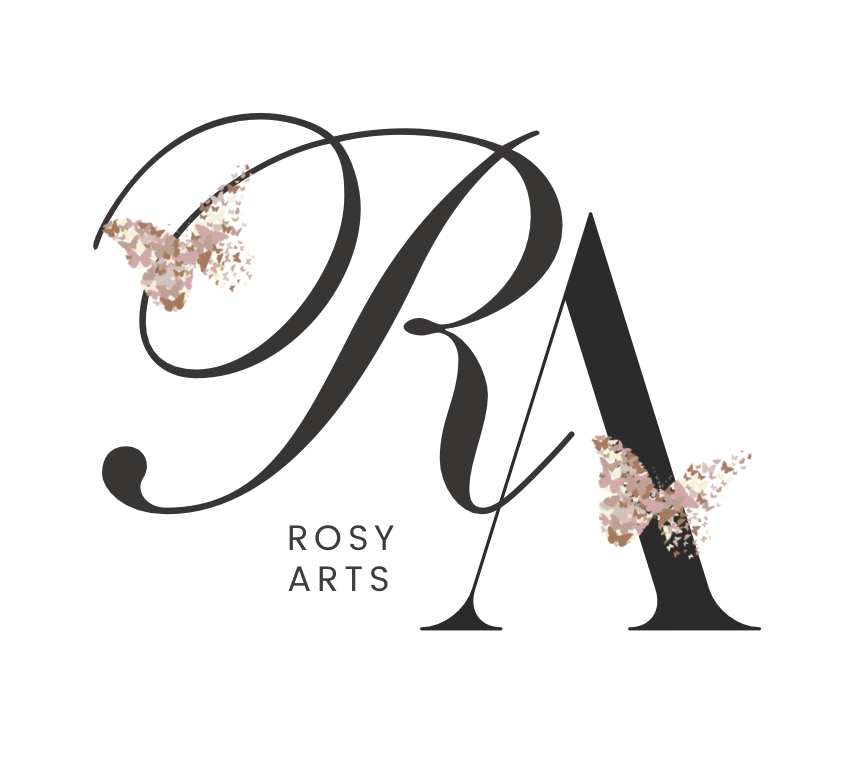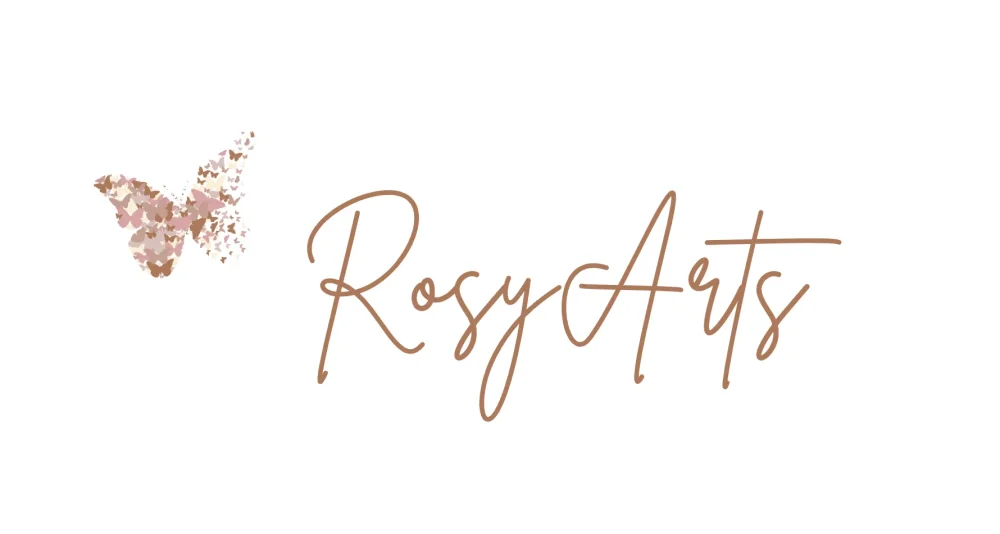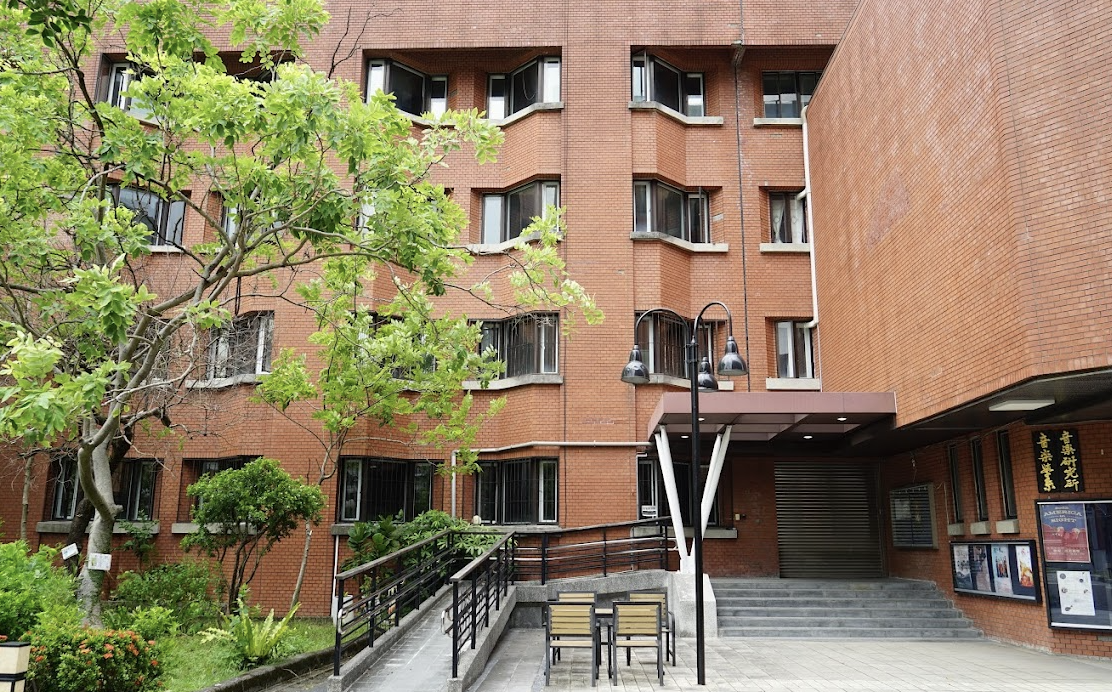嗨!我是在109年度申請上師大音樂系跨校輔系的台大學生,2023年也順利修完拿到輔系資格!108年度是三校聯盟第一年開放跨校輔系,然後109年度是師大音樂系首年開放,有鑒於音樂系的跨校輔系還沒有實施很多年,可能網路上的資料還不夠齊全,所以整理了這篇文章,希望可以幫助未來想要申請的學弟妹!
本文會盡量寫的詳細!希望可以幫到對師大音樂系輔系有不同程度了解的讀者。
師大音樂 跨校輔系 申請流程
輔系資訊公佈
通常會在下學期期末的時候,公布那年三校聯盟所有系所的名額與招生規定。要申請的同學請密切關注學校網站:國立臺灣大學系統 跨校雙主修/輔系申請 資訊共同平台,上面會有收件時間與放榜時間。
一般學校也都會再寄信通知同學,如下圖。
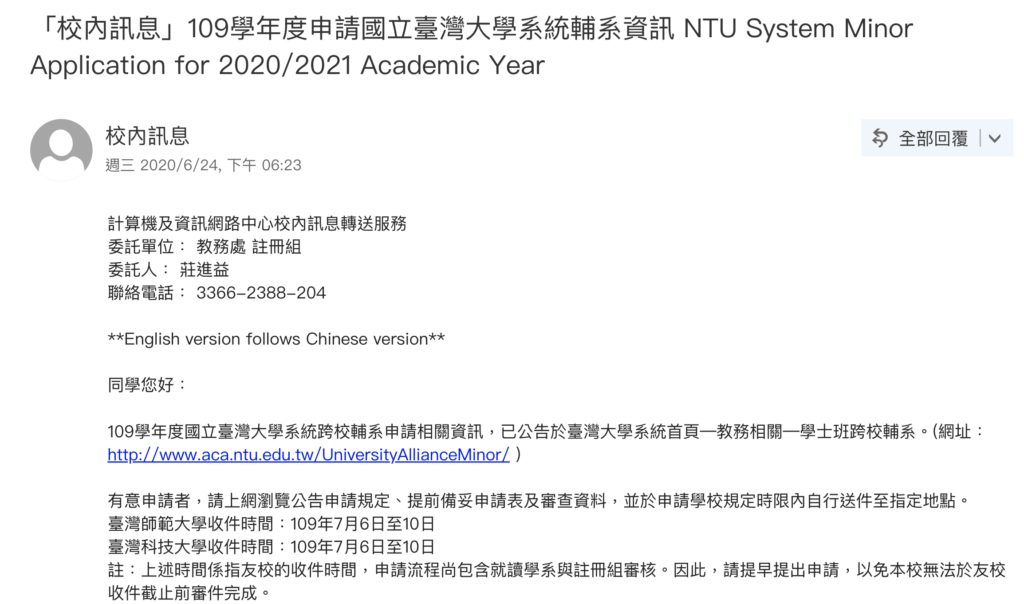
填寫申請表
109年度的時候,是直接填寫申請表,先拿給台大原系所系主任蓋章,再拿給台大教務處蓋章,最後再送到師大音樂系系辦(教務)。現在要先上台大轉雙輔專區填志願,依公佈的為準喔!
在前面申請、考試的部分都是育禎助教負責:yuchenhsu16@ntnu.edu.tw(2025更:現在是柯佳瑜助教負責:chiayuko@ntnu.edu.tw,師大那邊稱系辦人員助教,跟台大這邊比較不一樣)
師大音樂系輔系 考試內容、準備
第一階段 初試
初試主要是筆試,會考聽寫跟樂理,考試時間跟地點會公佈在音樂系網站的最新消息:師大音樂系網站,也會email通知!
109年度的時候是6/24公佈簡章、7/6-10申請,7/15初試公告,7/21考筆試,要申請的同學請再隨時注意公告喔!(現在時程都提早一些了)師大本校的同學則是4、5月左右就會考了。
樂理考試內容
樂理總分為50分:
音階 5題(1題2分,共10分)
和弦與轉位 10題(1題2分,共20分)
四部和聲 1題 (20分)
跟大學的術科大考基本上是長得一模一樣,難度也差不多,但考的項目比較少,只有上面這幾種題型而已,音樂史的選擇題也沒有考!我自己是看征服樂理,挑戰自己這本書來準備,很多音樂班也都會用這本書,基本上概念都講得很清楚,讀過之後這幾個題型應該都不會有太大問題。征服樂理,挑戰自己 蝦皮購買連結
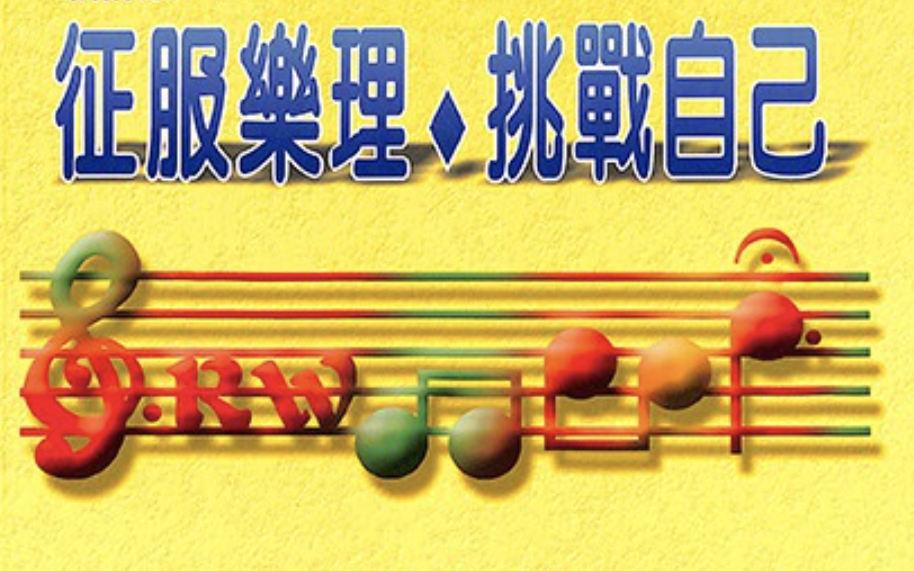
若有不清楚題型的同學可以先找大學術科大考的題目來看看~~四部和聲也可以先看官大為的影片!影片連結
這邊再推薦一些相關的書(都是蝦皮):
術科考音樂史筆記🎵📚 重點整理 考前複習📖:術科大考樂理98的學生做的筆記,如果想要在開學前稍微複習,或是想要在筆試前準備,怕突然考出來的同學可以參考
征服樂理,挑戰自己(引導篇):比黃色那本更基礎的樂理書
樂理模擬考全真試題:考前練手感用!
聽寫考試內容
聽寫總分也是50分:
音程 10題 (1題1分,共10分)
節奏 2題 (這邊配分有點忘記了,憑印象 1題5分,共10分)
單旋律 1題 (1題10分)
和弦進行(寫最低音跟級數的那個)(1題20分)
聽寫感覺是比較難一日練成,不一樣程度的同學可能需要不一樣的練習。
基本上也是長得跟大學術科大考一模一樣,只是題型比較少,只有考上面那些,速度、播放次數都是跟大考一樣,在考之前也可以依照大考的模擬考去練手感。
小叮嚀:術科大考的聽寫試題音檔範例:影片連結(曾經被問過音程音檔是兩個音一起彈還是分開彈、還有是什麼樂器的聲音xd)好和弦聽寫考題介紹:連結
一樣推薦一些相關的書:
聽寫模疑考全真試題:聽寫比較有時間壓力,所以更推薦一定要練手感
搶救大作戰練習作業本:一樣可以從比較簡單的題目慢慢練上去,給想要多做一些題目的人。
Online Ear Trainer 3.0:這個網站的訓練主題有音程、和弦、旋律以及和聲進行。
第二階段 複試
109年度,7/23公布複試名單跟考試順序,一樣是會在音樂系網站公告,也會寄email通知,7/29面試!
這邊講一下面試的流程,一開始到109教室之後(系館進去左轉),助教會帶每個人去琴房暖手一下(我那時候剛好被分到109對面那間暖手),然後等時間差不多了之後助教就會來叫你,當時是一首自選曲面試就可,但現在改成要自選兩首不同樂派的曲子,這邊小提醒一下不要選太爭議的,盡量很明顯是巴洛克/古典/浪漫/近代,師大期末術科考浪漫跟近代的表定分界是1900年,但還是盡量在年代上跟風格上都有符合那個時期。
進去之後要報名字系所以及要彈的曲子,自我介紹一下,然後就開始彈,會有三個教授坐在教室另一邊的長桌評分,除了彈正確跟技巧,知道那首曲子應該要長什麼樣子,以及該如何表達也很重要!然後考完之後教授有問問題,有沒有讀過音樂班之類的,然後就可以出去了,助教會再要學生證來確認身份,要記得帶。
輔系實施要點:連結(截至2023/07最新版本)
開學前準備
我那個時候因為是第一年,所以助教直接打電話通知我,但是後來都是會跟著學校的時間公布名單,再上網看就可以!
琴房
輔系的學生也可以使用練習琴房,但是跨校輔系的同學沒有辦法直接在網路上預約,因為沒有師大的帳號,所以要預約琴房都是直接寄信給淨淳助教:a1995910@ntnu.edu.tw,但記得要提早寄信!不然助教是不會臨時馬上處理的。然後進去練習琴房是要刷卡的,可以到音樂系系辦,拿台大學生證設定,之後就可以刷,但是門口的門沒有辦法設定,所以在系館人太少的時候蠻可能會被鎖在裡面
選課
主修課的話可以先詢問想上的老師,先詢問老師的意願。然後系辦這邊會發表單調查大家的主修老師,有說好的就寫上去就可以,沒有的話系辦會直接幫排主修老師,另外是和聲學跟音樂基礎訓練的考試參加意願,在開學前幾天會跟音樂系大一新生一起考,兩門課都會分成ABC三個班,會依照考試結果來排,如果沒去考的話,就只能上最基礎的A班。
然後助教會再開一個表單,來詢問每個同學這學期要上什麼課,會再把這些課開通到台大的選課系統(如果在台大課程網可以查詢到這堂課了,就代表開通完成),然後再找那門課的老師拿授權碼,從台大這邊點加選外校選課。
師大課程網:連結
選課事務都是于婷助教負責:yutingkao@ntnu.edu.tw
繳費
在開學選課確定之後,如果有上個別課的同學,則要另外繳錢,系辦會寄繳費單,跟著上面流程繳費就可以(跑完大概要花半小時)。個別指導費每學分9500元,器材維護費每學期590元,所以一學期是要額外繳10090元。
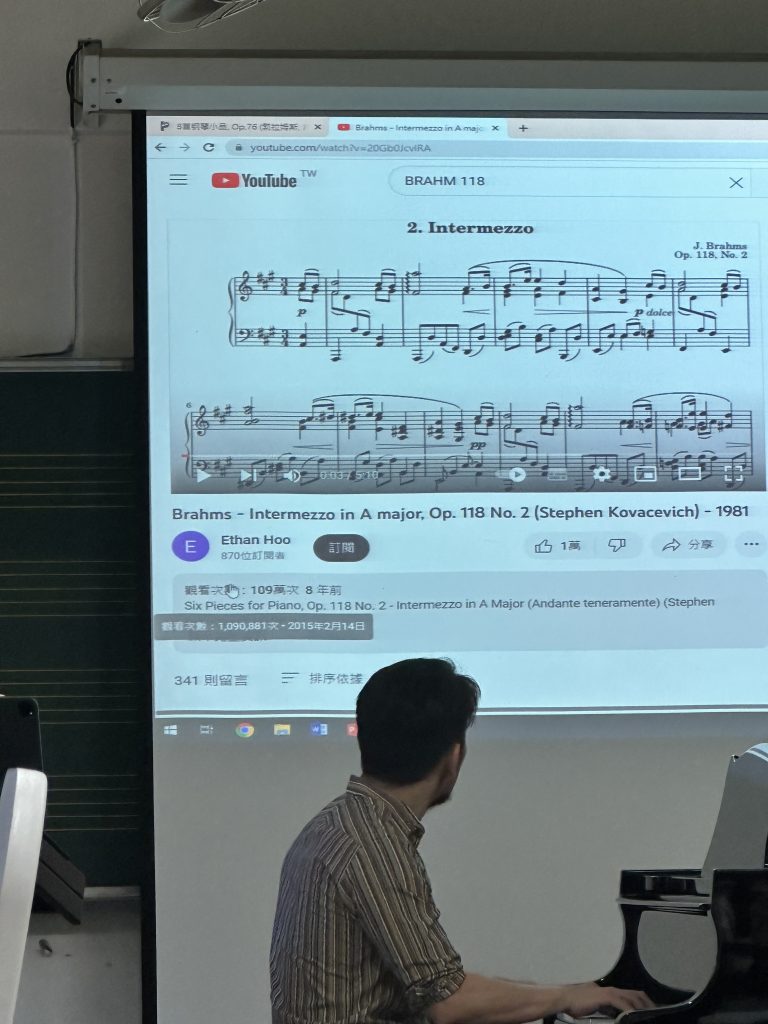
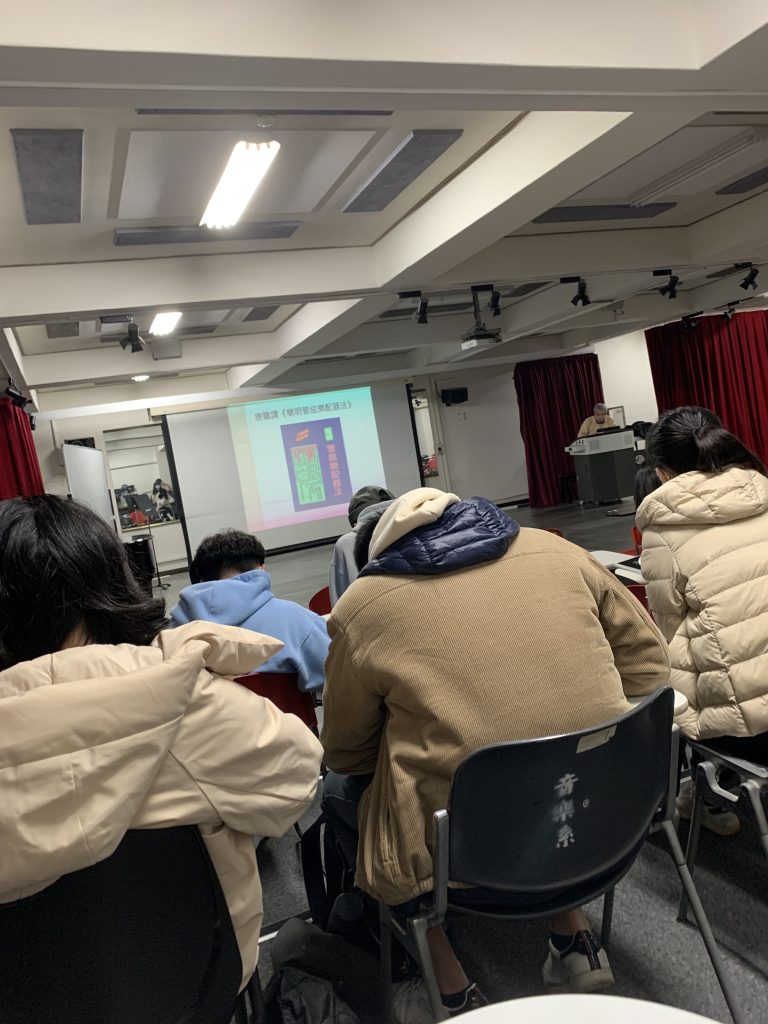
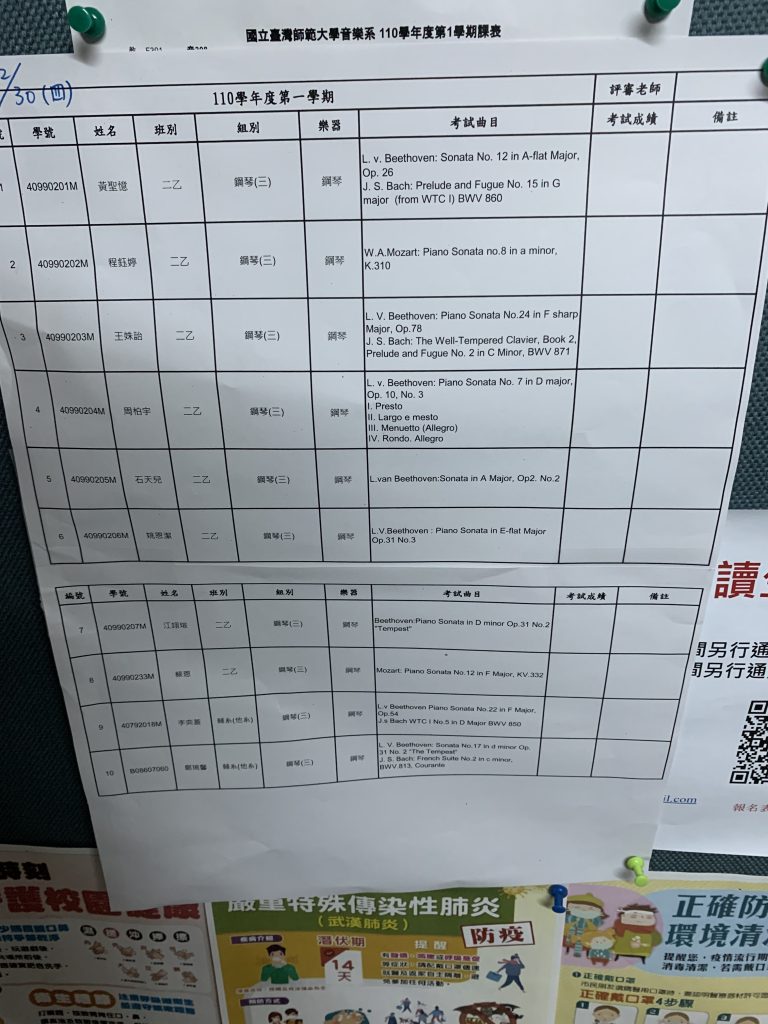
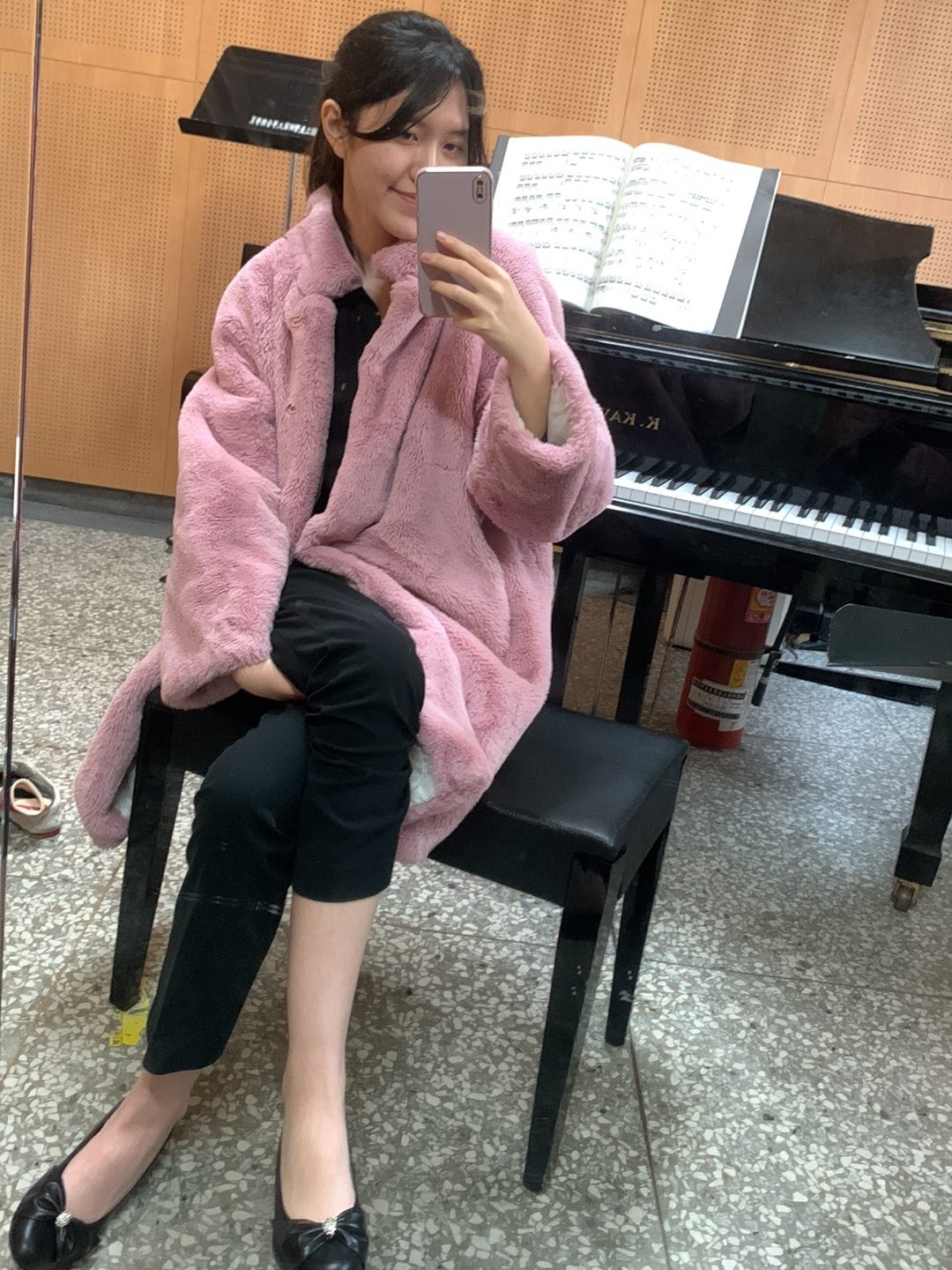


更多內容?點這裡 ➜ RosyArts 生活專區
